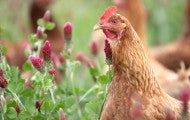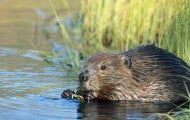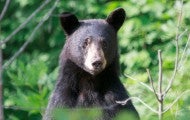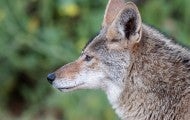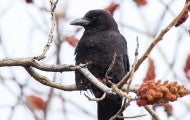Undercover video footage from a recent visit by the Humane Society of the United States at Bill Meadows’ Tiger Safari in Tuttle, Oklahoma, led to a U.S. Department of Agriculture citation for causing animals trauma and stress. The inspection report was made public last week. In March 2021 an HSUS...
The Humane Society of the United States is thrilled to announce that UCLA has committed to transition 50% of entrees served on campus to plant-based options by 2027. This goal will be supported by the HSUS’ Food Service Innovation team, which works with many of the largest food service management...
DAYTON, Ohio—The University of Dayton, Ohio’s largest private university, has exceeded its plant-based menu goal by surpassing its 2025 goal by 10%. The institution is solidifying its reputation in sustainability by consistently serving over 40% plant-based entrees. In 2021, the University of Dayton...
MONMOUTH, Ore.—The Humane Society of the United States is thrilled to announce that Western Oregon University, the state’s oldest public university, has signed the Forward Food Pledge, committing to transition the university’s campus dining menus to 50% plant-based meals by 2027. WOU has set this...
Beavers are making a comeback. Nearly driven to extinction by the fur trade, nature’s best architects are now 6–12 million strong in the United States. This return will provide significant benefits to our country’s ecology, which has lost much of its wetlands to development and agriculture. Learn...
As black bear numbers increase in some North American communities and more people move into bear habitat, encounters between bears and people have risen. Whether you live in bear country or are just visiting, you can take simple steps to avoid conflicts. Learn More About Bears (Please note that this...
Rounding up and killing entire flocks of geese has become an all-too-common (and temporary) fix in many communities. Besides being inhumane, this also leaves room for a new flock to just move right in. Geese shouldn’t be killed for doing what comes naturally, especially when long-term, effective and...
Once robust, populations of cougars (also known as mountain lions or pumas) have declined drastically across most of their range in the Americas. The population decline is due to the impact of extensive hunting and predator control, in addition to continued habitat loss and fragmentation. Cougars...
If you spot a coyote in your neighborhood, relax: Most coyotes avoid people. “Seeing a coyote out during the day is not a cause for alarm, especially in the spring and summer when they’re out looking for food for their pups,” says Lynsey White, HSUS director of humane wildlife conflict resolution...
Foxes are omnivores, hunting very small animals and scavenging in cities and towns where freely available pet food and garbage can make life easier. It’s not unusual for a fox to be seen out and about during the day. Learn More About Foxes Foxes are afraid of people and will usually run away when...
